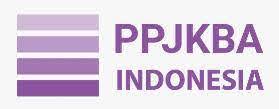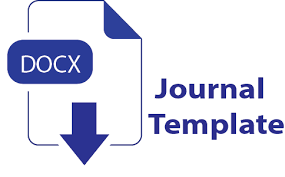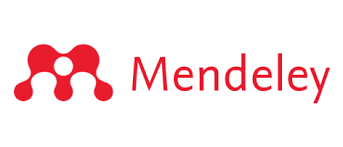The Innovation of Arabic Debate Learning Using TalkPal AI
DOI:
https://doi.org/10.58223/al-irfan.v7i2.284Keywords:
Innovation, Arabic Debate, Talkpai AIAbstract
The rapid and innovative development of technology presents its own challenges, especially when applied in the field of education, specifically the use of TalkPal AI in Arabic debate learning. TalkPal AI offers an innovative approach that can help students develop debating skills and Arabic fluency through real-time feedback. The purpose of this research is to describe the use of TalkPal AI in learning Arabic debate to enhance students' Arabic debating skills. The approach used is descriptive qualitative, with data collected through observation, interviews, documentation, and questionnaires. The research population consists of 28 third-semester students from the Arabic Language Education (PBA) program, with a sample of 12 students from class B. The results of the study show that 83% of respondents felt aided by the use of TalkPal AI, significantly improving their debating skills and language proficiency. Despite some technical challenges related to internet connectivity, TalkPal AI provides a more flexible, effective, and interactive learning experience. This research concludes that TalkPal AI is an effective innovation in supporting Arabic debate learning among students.
References
Abdilah, A. A., & Holilulloh, A. (2022). Effectiveness of Arabic Debate Community to Improve Students’ Arabic Speaking Skills /Efektivitas Komunitas Debat Bahasa Arab Untuk Meningkatkan Kemampuan Berbicara Bahasa Arab Mahasiswa. ATHLA : Journal of Arabic Teaching, Linguistic and Literature, 3(2), 116–132. https://doi.org/10.22515/athla.v3i2.5668
Ahmad Fatah. (2016). INOVASI PEMBELAJARAN BAHASA ARAB (Respon, Tantangan dan Solusi Terhadap Perubahan). Arabia, 8(1), 1–28. https://journal.iainkudus.ac.id/index.php/Arabia/article/view/1942
Aryani, N., & Wahyuni, M. (2020). Teori Belajar Dan Implikasinya Dalam Pembelajaran. Universitas Negeri Malang, 1(1), 2.
Bahruddin, U., Amrullah, A. M. K., & Audina, N. A. (2021). Constructivism in Maharah Kalam Lecture Using the Instagram Media: The Implementation, Problems, and Tertiary Students’ Perceptions in Indonesia/Kontruktivisme dalam Perkuliahan Maharah Kalam Menggunakan Media Instagram: Implementasi, Problematika dan Per. Arabiyatuna : Jurnal Bahasa Arab, 5(1), 127. https://doi.org/10.29240/jba.v5i1.2396
Bahruddin, U., Halomoan, & Sahid, M. M. (2020). Implementation of Hots in Debate Strategy To Improve the Ability of Speaking Arabic Among Students. Solid State Technology, 63(4), 816–826. http://www.solidstatetechnology.us/index.php/JSST/article/view/1322
Bahruddin, U., Ramadhan, M. F., & Bahruddin, W. (2021). Improvement of speaking skills through the use of Arabic as an introduction language. Turkish Journal of Computer and Mathematics Education, 12(8), 2760–2768.
Darman, I. H. (2022). Pengaruh Penerapan Metode Munazharah (Debat) Dalam Pembelajaran Muhadatsah III Di PBA STAIN Madina. Al Qalam: Jurnal Ilmiah Keagamaan Dan Kemasyarakatan, 16(4), 1422. https://doi.org/10.35931/aq.v16i4.1126
Efendi Hidayatullah. (2024). The Impact of Talkpal.AI on English Speaking Proficiency: An Academic Inquiry. Journal of Insan Mulia Education, 2(1), 19–25. https://doi.org/10.59923/joinme.v2i1.98
Fatimah, M. (2021). Media Pembelajaran Digital Sebagai Inovasi Pembelajaran Debat Dalam Forum Diskusi Pada Masa Pandemi Covid-19. https://doi.org/10.31219/osf.io/uydph
Lutfiyatun, E., Kurniati, D., & Fajriah, N. (2023). Pemanfaatan Artificial Intelligence ( AI ) Dalam Tarjamah dan Muhadatsah Di Perguruan Tinggi. Balai Diklat Keagamaan Aceh, 2(2), 93–105. https://seulanga.kemenag.go.id/index.php/journal/article/view/136
Muttaqien, A., & Faedurrohman, F. (2022). Strategi Pelatihan Bahasa Arab dengan Metode Debat bagi Mahasiswa Komunitas Al-Kindy di Pusat Ma’had Al-Jaami’ah UIN Maulana Malik Ibrahim Malang. Al-Muyassar: Journal of Arabic Education, 1(1), 41. https://doi.org/10.31000/al-muyassar.v1i1.6071
Naseha, S. D. (2022). Model Pembelajaran Kooperatif Team Games Tournament dalam Pembelajaran Mahārah Kitābah di Perguruan Tinggi. Aphorisme: Journal of Arabic Language, Literature, and Education, 3(2), 52–68. https://doi.org/10.37680/aphorisme.v3i2.1968
Ninoersy, T. T., & Akmal, S. (2020). Penerapan Pola Perkuliahan Muhadatsah Melalui Metode Debat Aktif Pada Prodi Pendidikan Bahasa Arab Fakultas Tarbiyah Dan Keguruan Uin Ar-Raniry Banda Aceh. JURNAL ILMIAH DIDAKTIKA: Media Ilmiah Pendidikan Dan Pengajaran, 20(2), 165. https://doi.org/10.22373/jid.v20i2.5478
Nurullawasepa, M., Mandani, N. Z., Adawiyah, R., Al Ayyubi, S., & Abdillah, A. A. (2023). AI (Artificial Intelligence) dalam Penerjemahan Teks Bahasa Arab. Jurnal SENRIABDI: Seminar Nasional Hasil Riset Dan Pengabdian, 3(1), 141–157.
Pratama, A. W. (2021). Penerapan Metode Qatar Debate Untuk. 406–416.
Rachmayanti, I., & Alatas, M. A. (2023). Pemanfaatan AI sebagai Media Pembelajaran Digital dalam Foreign Language Development Program (FLDP) IAIN Madura. GHANCARAN: Jurnal Pendidikan Bahasa Dan Sastra Indonesia, November, 214–226. https://doi.org/10.19105/ghancaran.vi.11752
Rahardjo, M. (2011). Bahasa Sebagai Alat Komunikasi Publik Dan Pembangunan Wacana. LiNGUA: Jurnal Ilmu Bahasa Dan Sastra, 2(1), 59–69. https://doi.org/10.18860/ling.v2i1.558
Sakaroni, R. (2024). Persepsi Siswa terhadap Integrasi Teknologi AI TalkPal dalam Pembelajaran Persepsi Siswa terhadap Integrasi Teknologi AI TalkPal dalam Pembelajaran Bahasa Arab. August.
Syafe’i, I. (2016). Model Pembelajaran Bahasa Arab Berbasis Konstruktivisme Di Perguruan Tinggi Islam. Jurnal Pendidikan Islam, 27(3), 463. https://doi.org/10.15575/jpi.v27i3.530
Downloads
Published
How to Cite
Issue
Section
License
Copyright (c) 2024 Siti Durotun Naseha, Abdul Ghofur, Mu'at Mu'at, Muhammad Fatkhur Rizal, IGL Putra Eka Prismana

This work is licensed under a Creative Commons Attribution 4.0 International License.
Lisensi :
Al-Irfan: Journal of Arabic Literature and Islamic Studies is published under conditions Creative Commons Attribution 4.0 International License / CC BY 4.0 This license permits anyone to copy and redistribute this material in any form or format, modify, modify, and make derivative works of this material for any purpose, including commercial purposes, so long as they credit the author for the original work.











